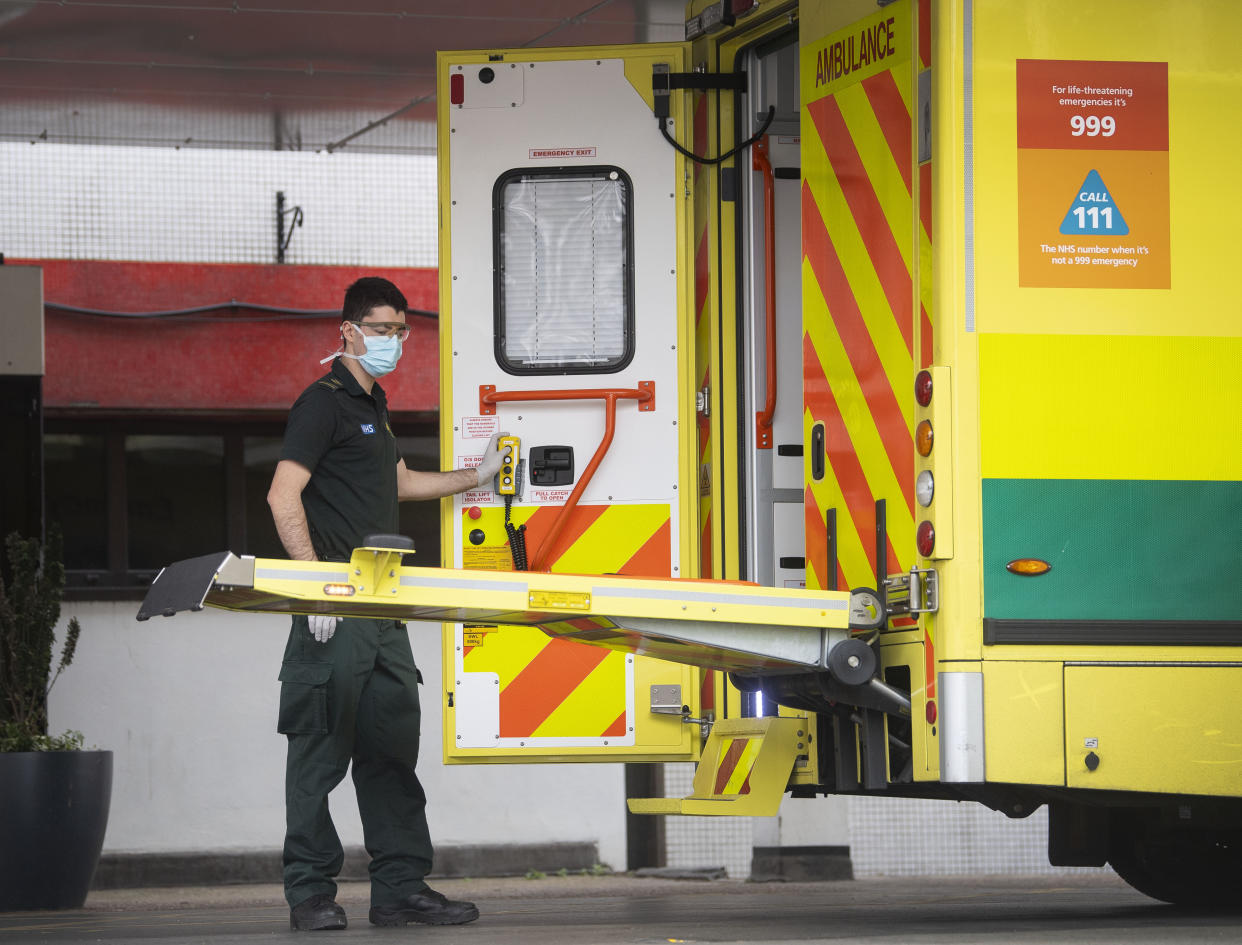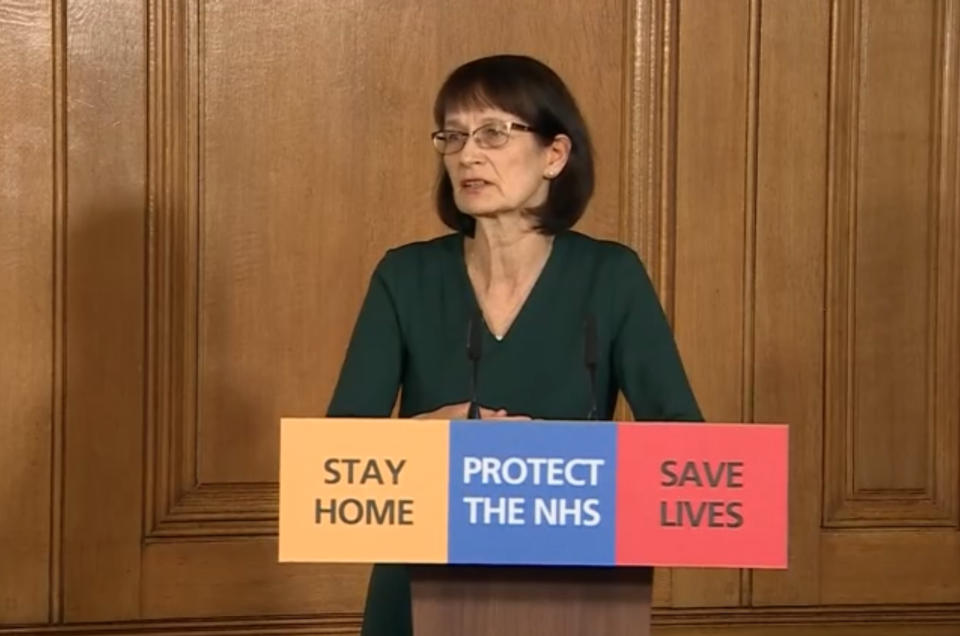Coronavirus: Questions raised over accuracy of UK death toll

Questions have been raised over whether the official coronavirus death toll accurately reflects the number of fatalities seen in hospitals.
A tally of NHS data updated on Sunday says 11 people have died in hospitals run by King’s College Hospital trust after testing positive for COVID-19.
But the trust’s own website, which was updated on Friday, says 33 patients who have tested positive have died.
Asked about such disparities, Dr Jenny Harries, deputy chief medical officer for England, said there was a “time lag” in the number of deaths tallied up as officials firm up the numbers and speak to families.
Latest coronavirus news, updates and advice
Live: Follow all the latest updates from the UK and around the world
Fact-checker: The number of COVID-19 cases in your local area
6 charts and maps that explain how COVID-19 is spreading

Dr Harries said at a Downing Street press conference: “We have to make sure that when we’re reporting the family is content and knows and all our data is absolutely accurate.
“There is always a time lag for us to check and evaluate that the data across the system is linked.
“We do not want to be misreporting data and then having to correct it.
“The public would not have confidence if we were doing that.
Read more: Inside the new 4,000-bed NHS Nightingale Hospital at London’s ExCel centre
“As we have sadly had to register more deaths, that time period takes longer.”
Harries also said it could be six months or longer before the British public could “get back to normal", warning that easing restrictions too soon would be dangerous and could result in a second surge of cases, according to The Telegraph.

The UK’s official death toll reached 1,228 on Sunday after rising by 209 – the second largest day-on-day rise in the number of deaths reported since the outbreak began.
As cases continue to rise, it was revealed on Monday that Boris Johnson’s chief adviser Dominic Cummings may have joined the ranks of those the virus.
Read more: NHS doctor pleads for more coronavirus protective equipment
The news comes after the prime minister and the health secretary announced on Friday that they had both tested positive for the virus. The government's chief medical adviser Chris Whitty and Scottish secretary Alister Jack are also self-isolating after experiencing symptoms.
Cummings is now self-isolating after reportedly falling ill over the weekend.
To tackle the onslaught of cases, health officials have been racing to scale-up the UK’s intensive care capacity with the construction of the NHS Nightingale, a new 4,000-bed hospital being built at the ExCel centre in east London.
We're proud to lead the @VentilatorU consortium of UK industrial, #technology & engineering businesses from across aerospace, automotive & medical sectors, come together to produce #medical #ventilators for the UK.
Find out more ⬇️https://t.co/qDiraTpP6L#VentilatorChallengeUK pic.twitter.com/nQjZuMPBr1— High Value Manufacturing Catapult (@HVM_Catapult) March 30, 2020
An initial 500 beds have been equipped with ventilators and oxygen at the hospital to treat the seriously ill, but the number of patients is expected to increase rapidly amid a shortage of ventilators.
Ministers have been trying to boost the number of ventilators, with just over 8,000 already available to the NHS.
Read more: UK faces 'massive shortage' of ventilators
UK manufacturers including car-makers and airplane engineers are stepping up plans to supply tens of thousands of ventilators for treating coronavirus patients.
Companies like Airbus, Rolls Royce and Formula One are banding together in response to the prime minister’s call for businesses to meet rising demand for the life-saving equipment.
Fashion and textile firms are also believed to have begun making gowns and masks for frontline workers.



